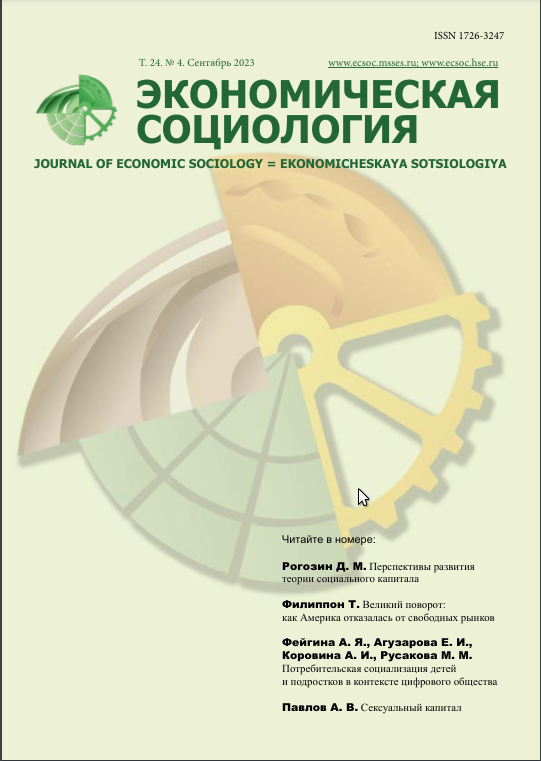Перспективы развития теории социального капитала
Abstract
The aim of this article is to re-evaluate the significance and relevance of the conceptualization of social bonds. The next steps involve altering operational definitions and questionnaire design, which first requires a critical examination of theoretical knowledge, an attempt to construct a conceptual framework, and an understanding of research perspectives. There are five primary tasks within the article. First, it is necessary to provide a brief review of the works of four classic authors in this field: Pierre Bourdieu, Robert Putnam, James Coleman, and Mark Granovetter. This selection is based on the personal preferences of the author and does not claim to be exhaustive. The second task is to the predominance of the economic aspect of social capital in the existing social research. The third task involves highlighting the development of the concept of social capital in Russia. Despite the absence of Russian authors among the classics, it is unreasonable to only discuss the replication of theoretical approaches. The reception of the concept in Russia is both interesting and heuristic. The fourth task is to propose a dominant social conceptualization that moves beyond economic interpretations of social bonds, focusing not just on resource exchange and the symbolic dictate of reciprocal relations. Finally, the fifth task involves presenting an alternative conceptualization scheme in which the idea of the public good takes precedence over individual schemes aimed at optimizing personal social status. This scheme emphasizes the primary role of the public good in the development and growth of social capital.













